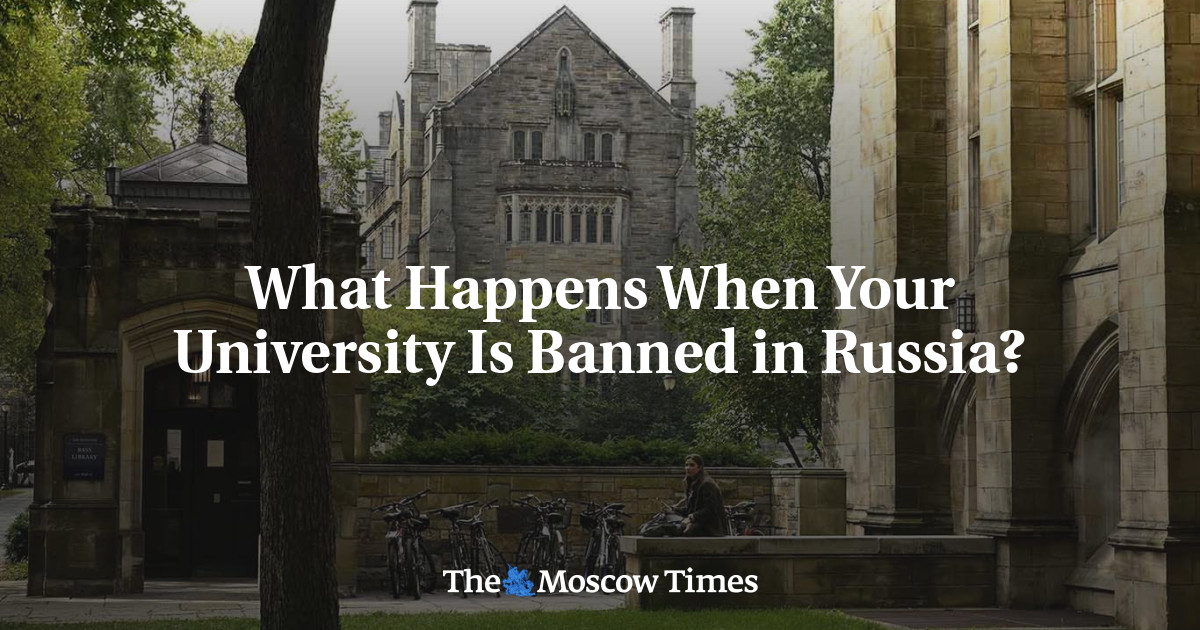
What Happens When Your University Is Banned in Russia?
How did your country report this? Share your view in the comments.
Diverging Reports Breakdown
What Happens When Your University Is Banned in Russia?
Yale University was banned in Russia as an “undesirable’ organization this month. One month earlier, Brigham Young University found itself in the same position. The two colleges are members of a small but growing number of universities whose operations have been banned. Dozens of universities, NGOs, think tanks, foundations and media organizations that have documented or criticized the country’s worsening human rights record and war in Ukraine have been hit with the label. Experts say the law has a chilling effect by creating the impression that any kind of contact with a person associated with a banned organization is illegal. The Kremlin has accused Soros and his organizations of posing a threat to state security. The college thinks that the Kremlin views academic freedom as a threat, regardless of whose money is behind it. It’s part of Putin’s increasingly elaborate infrastructure of intimidation, a professor says. The Russian Prosecutor General’s Office accused Yale of training opposition leaders, including members of Alexei Navalny’s groups, and providing justifications for international sanctions against Russia.
In its ruling, the Russian Prosecutor General’s Office accused Yale of training opposition leaders, including members of Alexei Navalny’s groups, and providing justifications for international sanctions against Russia. When Brigham Young University, which is owned by the Church of Jesus Christ of Latter-day Saints, was proscribed in June, no reason was given. Bard, too, had found itself in the dark about the reason for its proscription. But faculty have presented several theories. One suggestion was that the college was targeted for its association with billionaire philanthropist George Soros’ liberal Open Society Foundation — itself “undesirable” since 2015 — and was a founding member of its network of universities focused on supporting neglected student populations. The Kremlin has accused Soros and his organizations of posing a threat to state security.
After Bard announced a $500 million donation from Soros, pro-Kremlin campaigners staged a press conference in which conservative public figures warned against Soros’ alleged influence in Russia’s education system. The college thinks that the Kremlin views academic freedom as a threat, regardless of whose money is behind it. Bard’s president, Dr. Leon Botstein, said he believes that the liberal arts education that the partnership provided was seen as a threat. “From the Russian point of view, the Anglo-American tradition and the freedom it supports is connected with the ability to innovate. But scholarship and learning are not autocratic enterprises — they are inherently committed to freedom and disputation and dissent,” he told The Moscow Times. Before Bard College was banned, its dual-degree partnership with Smolny College at St. Petersburg State University (SPGU) had been an effort to introduce the tradition of liberal arts education to Russia, with hundreds of American and Russian students taking part in it. As the Smolny program grew in popularity and SPGU’s leadership became increasingly connected with the Kremlin, Bard considered spinning Smolny out from the main university to preserve its independence. “And then practically overnight, without warning, we were subject to an FSB investigation. And nobody knew why,” Botstein said. “We appealed to the American authorities under President Joe Biden to solve it and they couldn’t get to first base. The next thing we knew, we were declared undesirable.” The repercussions came quickly. An American professor at SPGU who helped run the exchange with Bard, Michael Freesewas, was detained on his way to work and deported from Russia over his connections with the college.
Smolny College in St. Petersburg. Courtesy of Smolny College
Another aluma of the Bard-Smolny program is artist Sasha Skochilenko, who was sentenced to prison for replacing supermarket price tags with facts about the invasion of Ukraine before being freed in a historic Russia-U.S. prisoner swap last summer. She said the program afforded students a level of intellectual freedom rarely found in Russian universities — which may be a reason it was targeted. “It wasn’t a formal place, like other places in Russia, because it was pure freedom,” Skochilenko told The Moscow Times. “There was no hierarchy between student and professor. We openly discussed things that are nowadays kind of criminal, like Putin and his politics, and it was wonderful.” She also credited her liberal arts education with helping her endure the two years she served in prison, where doctors feared for her health. “The sociology program meant I knew something about people, society, jail and institutions,” she said. “I turned my imprisonment into a tremendous performance and gained status in the community. People in jails deeply appreciate good storytellers and I could help people write touching letters to their loved ones.” Bard tried to appeal its “undesirable” designation, but received no response. It now operates the Smolny Beyond Borders program from its branch in Berlin as an online degree targeted at Russian-speaking students in the diaspora. Brigham Young University, whose study abroad program to Russia has been suspended since the Covid-19 pandemic, is reportedly considering trying to get its listing reversed as well.
Bard College campus. Pete Mauney
